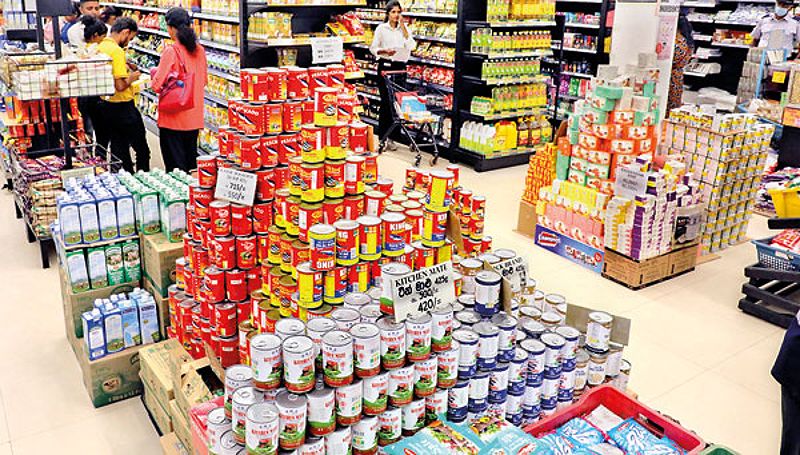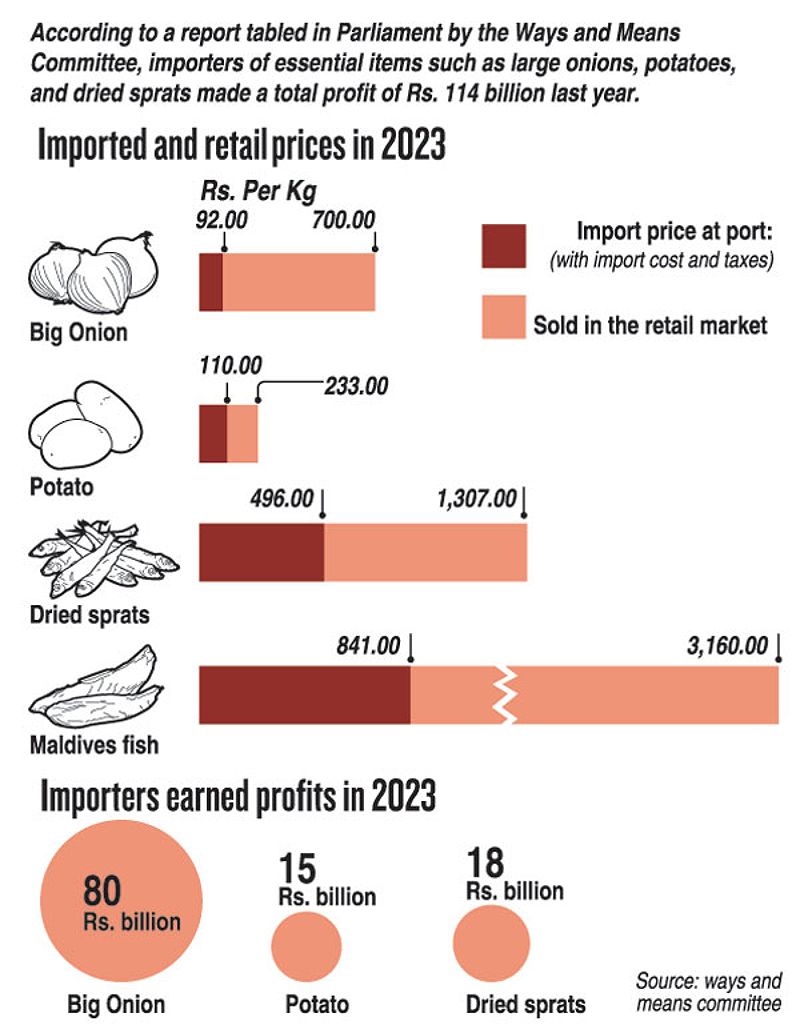Discover the impact of high prices on essential food items during festive shopping. Learn how traders and consumers are affected and the need for fair pricing and regulatory measures. Find out more.
The Impact of High Prices on Festive Shopping
As the National New Year and Ramadan festival approach, the usual hustle and bustle of markets and supermarkets is noticeably absent this year. Traders have observed a decline in customer arrivals and sales during the current festive season, attributing it to the high prices of Avurudu-related goods and household items. The moderate crowd seen at the markets seems more interested in purchasing clothing for the festivals rather than food items and household goods.
G. Gunasiri, an employee of a small supermarket in Wattala, expressed hope for a rush of customers a day or two before the New Year, once working people receive their festival advances or bonus payments. However, the decline in people's purchasing power has had a serious impact on businesses like his. Gunasiri emphasized that the decrease in customer arrivals affects their ability to handle the counters efficiently, especially when some employees take leave to be with their families for the New Year.
Decrease in Customer Arrivals and Sales
Dasitha Walgamage, the owner of a supermarket in Kiribathgoda, also noted a decrease in customer arrivals and sales compared to previous years. He attributed this trend to people buying only necessary items due to the high prices. Walgamage mentioned that supermarkets primarily sell items sent by importers and big-time traders, making it difficult for him to comment on the reasons behind the high prices. He did mention the unavailability of local big onions and the poor quality of imported onions and potatoes from India and Pakistan.
Amidst these high prices, the Parliamentary Committee on Ways and Means recently revealed that certain imported essential food items were generating obscene profits for traders, amounting to Rs. 1000 per kilo. Committee Chairman Paali Champika Ranawaka raised concerns about the discrepancy between market prices and import prices. To address this issue, the committee plans to publish the import prices of essential goods such as big onions, potatoes, and sprats, giving people insight into the prices. Ranawaka emphasized the need for the Consumer Affairs Authority (CAA) to investigate whether importers, middlemen, or wholesale and retail merchants were making excessive profits.
The Dispute Over Imported Food Prices
However, a senior CAA official disputed the committee's claim, stating that imported big onion prices increased due to a shortage of locally grown onions and the halt in exports from India and Pakistan. The official mentioned that to overcome the shortage and ensure affordability, onions were being imported from China and Turkey. The CAA plans to issue indicative prices for imported food items weekly and create awareness among consumers and merchants through media releases. They aim to keep the prices of imported items within the indicative range, especially with the appreciation of the rupee against the dollar.
In response to the allegations, importers argued that perishable food imports do not yield significant profits. They also questioned the accuracy of the statistics used to explain the disparity between imports and market prices. They highlighted the ban on importing green gram imposed by former President Gotabaya Rajapaksa in 2019, which has not been lifted.
Consumer Concerns and the Need for Regulatory Measures
Meanwhile, consumers blamed the CAA for not taking action to control the price increase of essential items such as onions, potatoes, and sprats. They alleged price manipulation by importers, who withhold imported onions and release them in limited quantities, taking advantage of high demand to set prices according to their whims.
The rising cost of living and prohibitive prices of essential goods have made it difficult for individuals like Gihan Yasappriya, a private printing press worker, to purchase them in large quantities. Yasappriya questioned why the government does not take action against corruption and alleviate the burden on people.
Chandra Manampitiya, a concerned citizen, stressed the need for regulatory mechanisms to prevent people from being misled and manipulated by merchants and importers. She emphasized that the government should establish measures to regulate prices and protect consumers from excessive price hikes.
Conclusion
As the festive season approaches, the impact of high prices on essential food items is felt by both traders and consumers. It is crucial for authorities to address the issue of excessive profits and ensure fair pricing to ease the burden on the public.




